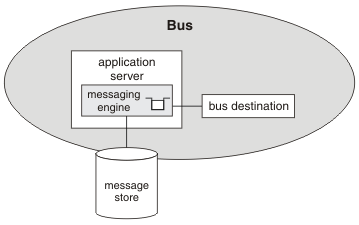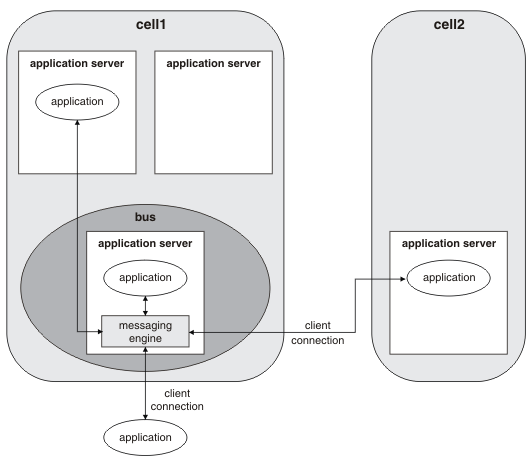Network Deployment (Distributed operating systems), v8.0 > Applications > Service integration > Service integration configurations > Bus configurations
Single-server bus
The simplest configuration is a bus consisting of a single server. Use this configuration if there is a low volume of message throughput and scalability is not essential.
In a single-server bus, there is one messaging engine. All destinations, such as queues and topic spaces, are assigned to this single messaging engine.
The single server set up has the advantage of simplicity. It aids performance as all messages and application connections are on the same messaging engine which minimizes path length. It also easy to manage as all messages and application connections are on the same messaging engine which minimizes the number of configuration and runtime objects to monitor.
However, having only a single-server configuration has the drawback of limiting scalability and high availability of applications and messaging.
Figure 1. Service integration bus with a single member
 application server that hosts a messaging engine. A bus destination is connected to the messaging engine. The message store is outside the bus, but connected to the messaging engine." />
application server that hosts a messaging engine. A bus destination is connected to the messaging engine. The message store is outside the bus, but connected to the messaging engine." />
An application can connect to the messaging engine, and therefore can connect to and use the bus, in any of the following situations:
- The application runs in another server in the same cell or in the same server, or in a server in a different cell , or in a client container.
- The application uses a client connection to the bus, or a in-process call
The following figure shows possible connections between a messaging engine and an application:
Figure 2. Applications connecting to a messaging engine

Bus configurations
Common issues with all bus configurations
Single-server bus